THE UNLIKELY PILGRIMAGE OF HAROLD FRY (2023)
Harold is an ordinary man who has lived an unremarkable life, until he goes to post a letter to an old friend... and just keeps walking.
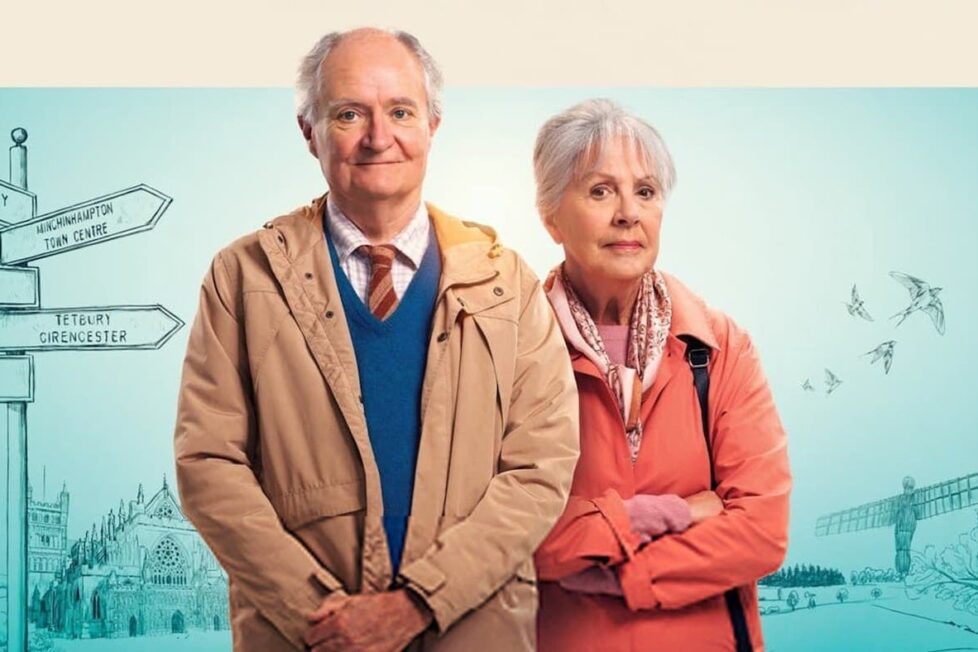
Harold is an ordinary man who has lived an unremarkable life, until he goes to post a letter to an old friend... and just keeps walking.


Jim Broadbent and Penelope Wilton are both incapable of giving bad performances, so even if the characters they play here hardly take them into new territory, they’re almost the only things that The Unlikely Pilgrimage of Harold Fry worth watching. It’s a film that stretches credibility too far, even for a parable, and ladles on the sentimentality too thickly.
Harold Fry (Broadbent) is a retired brewery worker living a quiet life in the small Devon town of Kingsbridge, near England’s south coast. Maureen (Wilton) is his wife and one gets an early impression they’re not actively unhappy together, but neither are they particularly happy. As couples of any age can be, they’re simply together through habit and the lack of an alternative.
One morning Harold receives a letter (theirs is a generation that still writes letters) from Queenie (Linda Bassett), an old friend with whom he long ago lost touch, but who’s now contactedHarold to let him know she’s dying of cancer in a hospice in Berwick-upon-Tweed, some 400 miles away near the Scottish border. Harold agonises over an appropriate reply, discarding draft after draft; after all, how do you respond to someone in these circumstances? Especially if—as the audience and perhaps Maureen assumes–they’re an old flame?
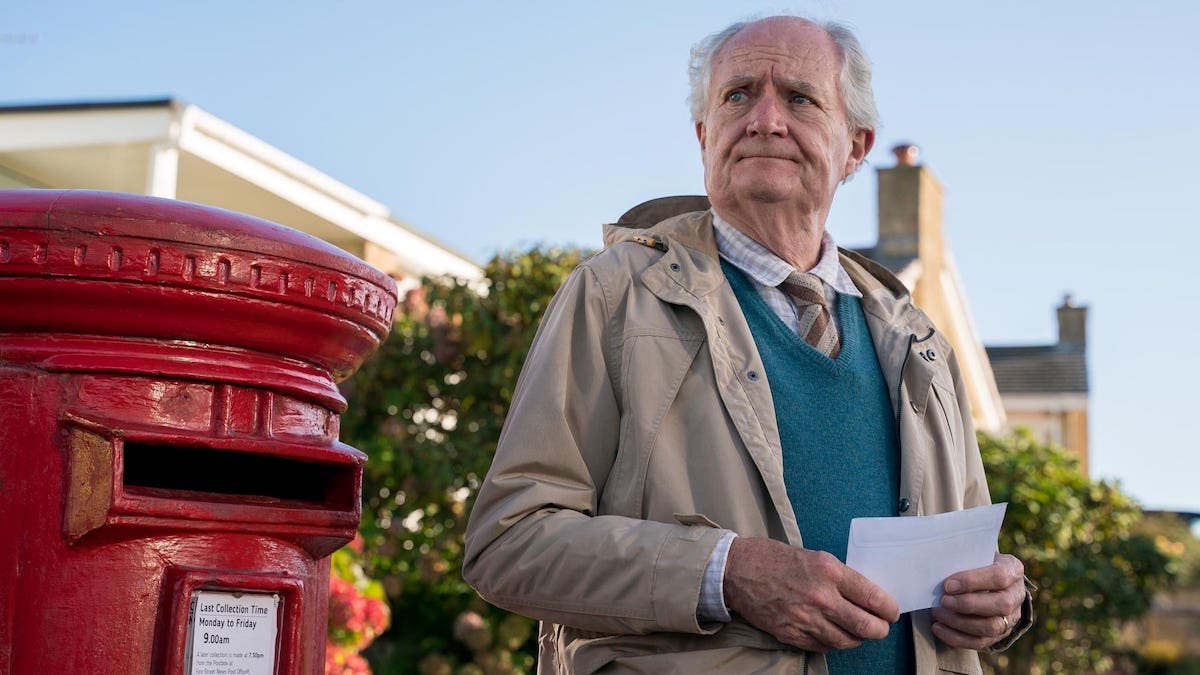
Eventually, Harold finds a form of words he’s happy with and off he goes to post the letter. But, along the way, a chat with the young cashier in a local convenience store (Nina Singh) inspires him to deliver it in person instead… and so he starts walking all the way to Berwick-upon-Tweed, pretty much the length of England. En route, he writes and calls Queenie, insisting she stay alive until he gets there.
Maureen is incredulous when Harold phones home to explain, of course, and annoyed too. Anxious that nobody should think her husband is strange (or has left her), she pretends for a while that he’s sick in bed, but it doesn’t fool her neighbour Rex (Joseph Mydell), a widower with whom she becomes friendly. In any case, it’s not long before Harold’s impulsive trek is on the TV news, and he even attracts an entourage of several dozen supporters who follow him with banners and songs.
Harold, though, isn’t comfortable with his personal pilgrimage to Queenie’s deathbed becoming a media event, and is also troubled by memories of his and Maureen’s son David (Earl Cave), a talented young man whose life had been derailed by substance abuse and mental health issues.
It’ll surprise no-one that—although his desire to see Queenie again is genuine—Harold’s real destinations are greater knowledge of himself, understanding of his relationship with Maureen, and coming to terms with the tragedy of his son’s life. Nor are late revelations about both Queenie and the son greatly unexpected. Still, the film doesn’t suffer too much from being essentially predictable, and indeed the way the audience is sometimes aware before Harold of what he’ll later comprehend can be effective.
Its bigger problems are with credibility and a tendency toward melodramatic sentimentality.
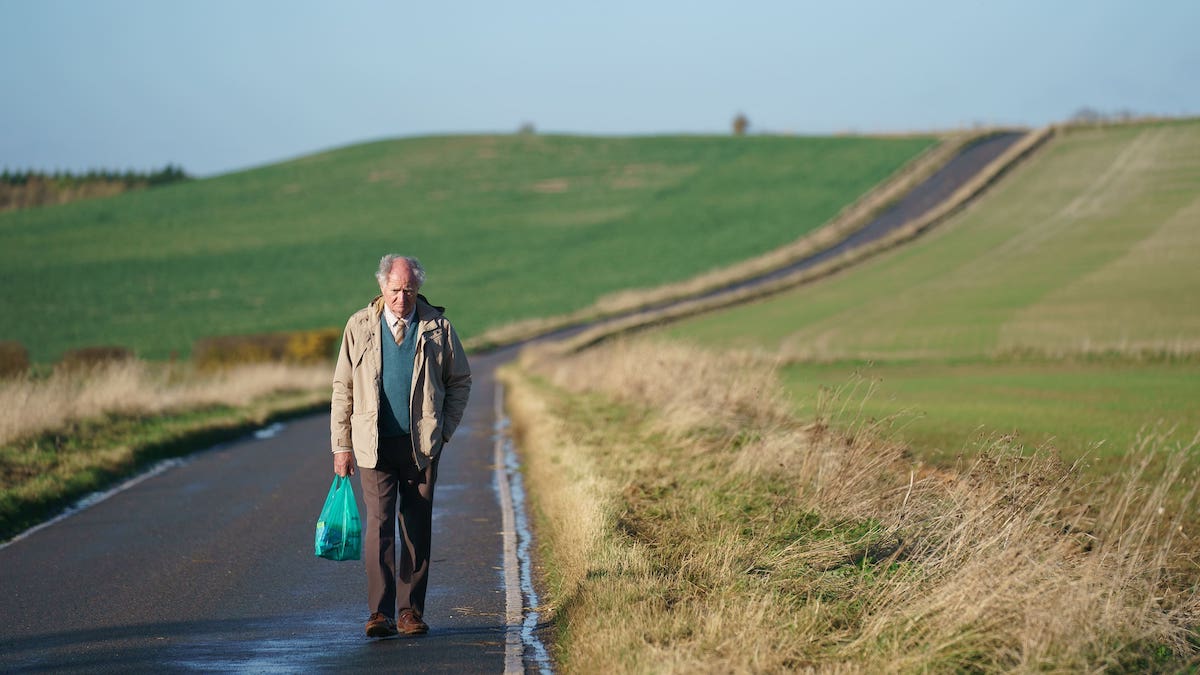
The inherent impracticality of Harold’s odyssey (he’d stand a much better chance of reaching Queenie before she died if he took the train) is, fair enough, the whole premise—-there would be no story worth telling, or at least not one like this, without it.
But the way he deliberately makes it even harder for himself to get to Berwick-upon-Tweed—for example, by posting home his bank cards (so he has no access to money)—seems more like pointless stubbornness, even weirdly passive-aggressive, than a grand romantic gesture. You have to wonder, at times, just how stable Harold really is; but if Hettie Macdonald’s film (only her second feature after 1996’s Beautiful Thing) is trying to make us question this, it’s not doing it obviously enough. (The film is based on a National Book Award-winning novel by Rachel Joyce, which I haven’t read, but Joyce also wrote the screenplay and the film doesn’t seem to depart too far.)
There are also times where credibility is sacrificed for effect. For example, when Harold finally does make it to Berwick-upon-Tweed, hardly anybody seems to know who he is—yet he’d been frequently recognised along the way, and his pilgrimage has been widely discussed in the national media. You’d think he’d be a local celebrity before he even got there!
At other points, The Unlikely Pilgrimage of Harold Fry works too hard to extract every last gasp and tear. Harold and Maureen’s son David, in his father’s memories, looks like a drug-crazed mugger out of a 1970s vigilante movie; the scene where a dog which has tagged along with Harold for a long part of his journey finally abandons him on a whim is not only quite un-doglike, but also feels like it might tip over into parody. It’s a miracle Harold isn’t splashed by a passing truck, or struck by a falling piano, at the same instant.
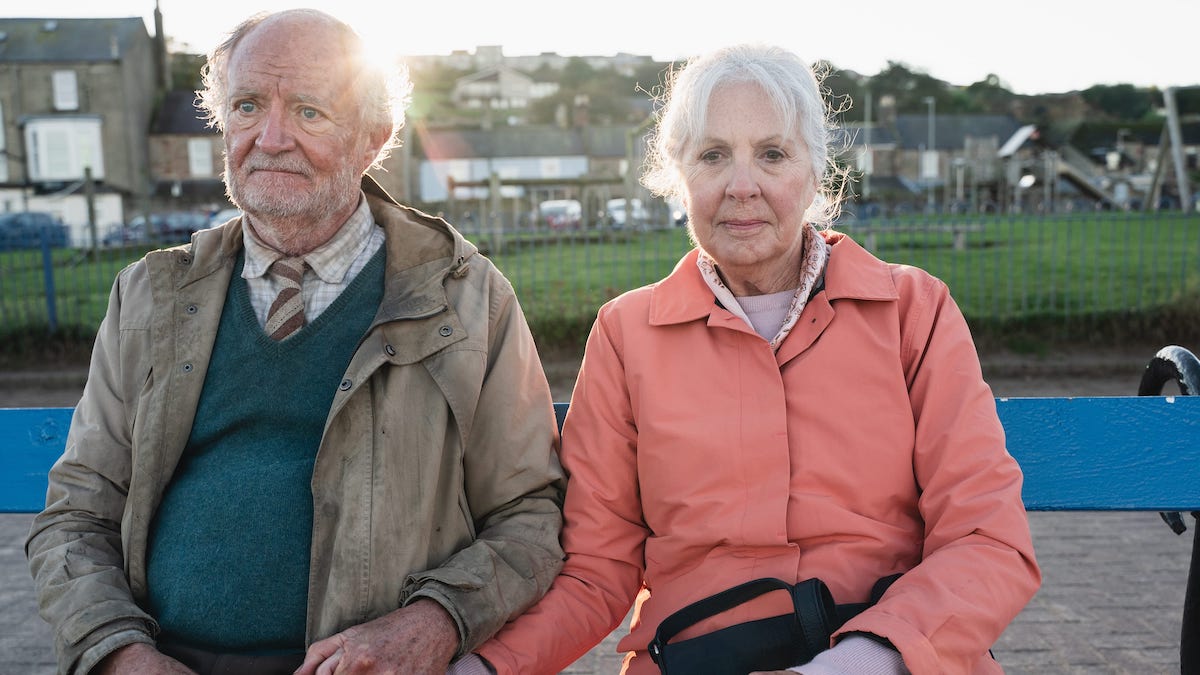
On the plus side, there are appealing performances from Broadbent (a master of the slightly bemused expression) and, especially, Wilton (particularly in her more irritable moments). Their relationship isn’t unlike that of Broadbent and Helen Mirren in The Duke (2020). Several actors in the supporting cast are strong, too: Monika Gossmann as an Eastern European doctor who can only find cleaning work in England; Maanuv Thiara as a boy Harold meets who reminds him of David; and Nick Sampson as a stranger in a railway station café who confesses to a secret gay affair. (Broadbent’s face when this man mentions trainer-licking is wonderful.)
The way Harold becomes the mascot of a motley group of hangers-on is convincingly handled—in the era of social media, we frequently see personal lives co-opted as public issues like this, by people who have no stake in them and perhaps simply want a cause, any cause, to identify with. And Kate McCullough’s cinematography is often lovely; the movie was shot in the actual locations Harold would have visited.
Minute-by-minute, then, there’s a fair bit to like about The Unlikely Pilgrimage of Harold Fry. But sterling performances and craftsmanship aren’t enough to overcome the essential problem—an already far-fetched story becoming even more far-fetched when it simply doesn’t make sense, or when the attempt to tug at heartstrings is too blatantly engineered.
UK | 2023 | 108 MINUTES | COLOUR | ENGLISH

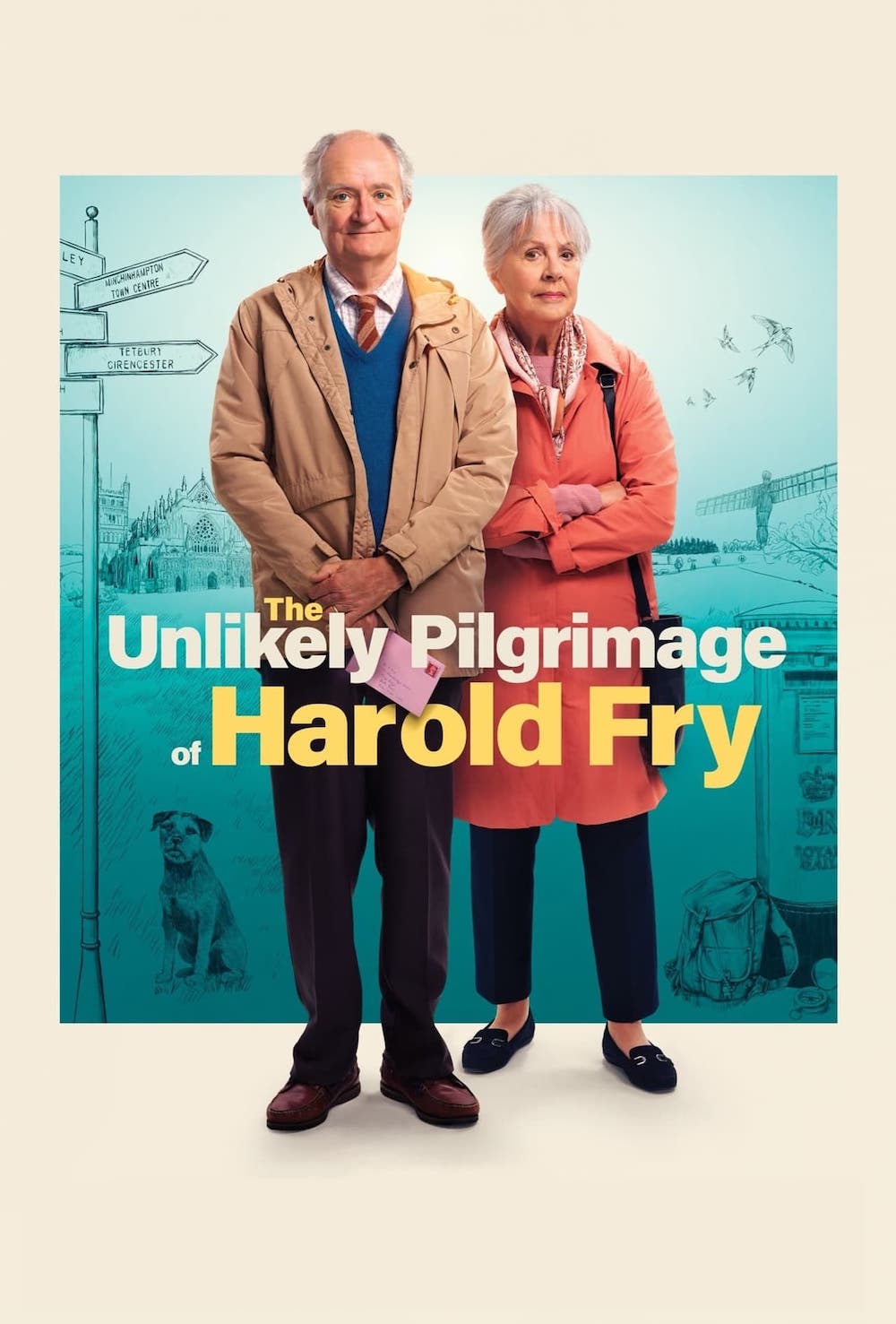
director: Hettie Macdonald.
writer: Rachel Joyce (based on her novel).
starring: Jim Broadbent, Penelope Wilton, Linda Bassett & Joseph Mydell.
